Content
Illegal Dumping
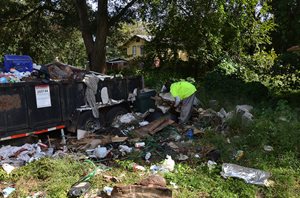 Discarding waste in an improper or illegal manner, where it doesn't belong or where environmental damage is likely because of the improper disposal.
Discarding waste in an improper or illegal manner, where it doesn't belong or where environmental damage is likely because of the improper disposal.
Here’s how you can help:
- Don’t litter – Keep trash out of our neighborhoods and off our roadways. If you can, please consider volunteering with Keep Jacksonville Beautiful or another local group to help cleanup litter in our community.
- Know your disposal days – You can find out the collection days for your trash, recycling and yard waste by visiting the MyJax online customer service website at myjax.custhelp.com and signing up for a free account. You'll be able to check the status of service requests and easily find information about your disposal days and evacuation zone.
- Report illegal dumping on private or public property online at myjax.custhelp.com or by calling 630-CITY (630-2489).
- Schedule collections for tires or appliances online at myjax.custhelp.com or by calling 630-CITY (630-2489).
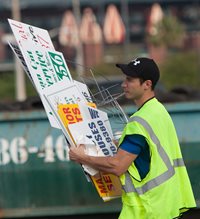 Illegal Snipe Signs
Illegal Snipe Signs
Any sign that is posted to a tree on public property, to a public utility box, to publicly-owned bench or shelter, public fence, or to any other object on public property or within the public right of way, except with the express permission or consent of the public property owner. Report illegal snipe/bandit signs online at myjax.custhelp.com or by calling 630-CITY (630-2489)..
Overgrown Grass
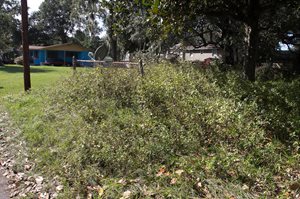 Did you know that your grass should be no higher than 15 inches over most of your property? Please keep your yard maintained. Remember, knee high is too high. Use the MyJax app to report a property with overgrown grass higher than 15 inches. Use the MyJax app to report a property with overgrown grass higher than 15 inches.
Did you know that your grass should be no higher than 15 inches over most of your property? Please keep your yard maintained. Remember, knee high is too high. Use the MyJax app to report a property with overgrown grass higher than 15 inches. Use the MyJax app to report a property with overgrown grass higher than 15 inches.
Report properties with grass taller than 15 inches online at myjax.custhelp.com or by calling 630-CITY (630-2489).
Abandoned and unkept homes, buildings and properties
Vacant and abandoned properties have negative spillover effects that impact neighboring properties and, when concentrated, entire communities and even cities. Research links foreclosed, vacant, and abandoned properties with reduced property values, increased crime, increased risk to public health and welfare, and increased costs for municipal governments.
V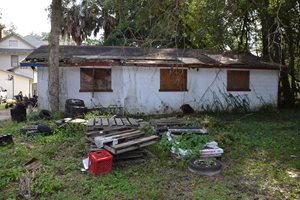 acant and abandoned properties are widely considered to attract crime because of the “broken windows theory” — that one sign of abandonment or disorder (a broken window) will encourage further disorder.20 Increased vacancies leave fewer neighbors to monitor and combat criminal activity. Boarded doors, unkempt lawns, and broken windows can signal an unsupervised safe haven for criminal activity or a target for theft of, for example, copper and appliances.
acant and abandoned properties are widely considered to attract crime because of the “broken windows theory” — that one sign of abandonment or disorder (a broken window) will encourage further disorder.20 Increased vacancies leave fewer neighbors to monitor and combat criminal activity. Boarded doors, unkempt lawns, and broken windows can signal an unsupervised safe haven for criminal activity or a target for theft of, for example, copper and appliances.
Vacant and abandoned properties are often easy to spot. The telltale signs of neglect — overgrown lawns, sagging gutters, and accumulating debris — can be a primary mechanism for the contagion or spillover of negative effects of vacant and abandoned properties.1 Even boarding up the windows and doors, the typical method of securing a vacant property, can turn the property into an eyesore and act as a visual reminder of its distress.
Report abandoned properties online at myjax.custhelp.com or by calling 630-CITY (630-2489).
Litter and Trash in Right-of-Ways
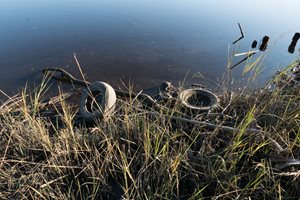 Litter and trash on right-of-ways refers to the dumping or disposal of trash, garbage litter, or animals for the purpose of disposal on public property, including on—or alongside—a public road or right-of-way. Help keep our roadways clean and safe by disposing of trash in trashcans and recycle bins. Overgrown grass and weeds that obstruct portions of a public sidewalk, or road are also considered illegal types of blight, in addition to parked and abandoned vehicles.
Litter and trash on right-of-ways refers to the dumping or disposal of trash, garbage litter, or animals for the purpose of disposal on public property, including on—or alongside—a public road or right-of-way. Help keep our roadways clean and safe by disposing of trash in trashcans and recycle bins. Overgrown grass and weeds that obstruct portions of a public sidewalk, or road are also considered illegal types of blight, in addition to parked and abandoned vehicles.
Report litter or trash in city right-of-ways online at myjax.custhelp.com or by calling 630-CITY (630-2489).